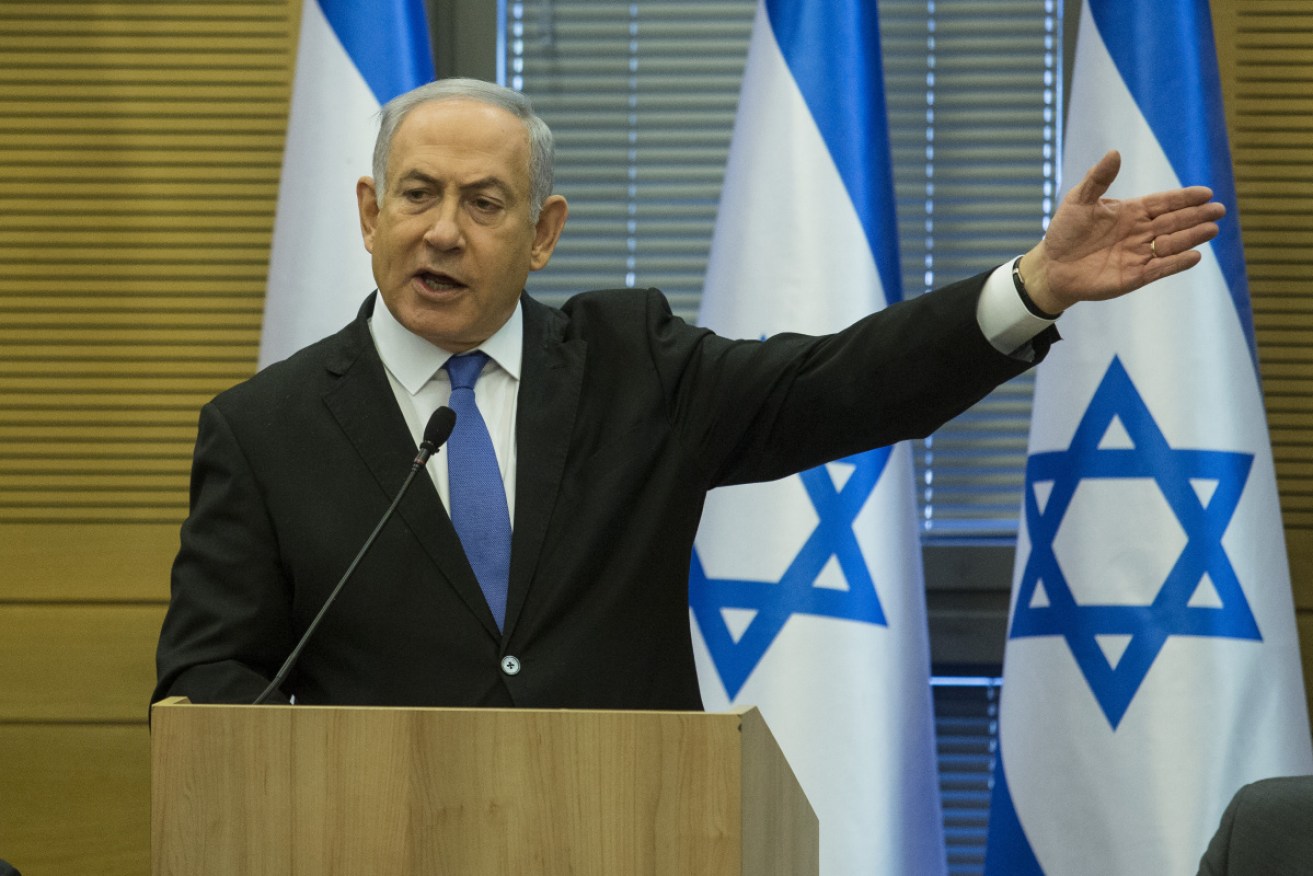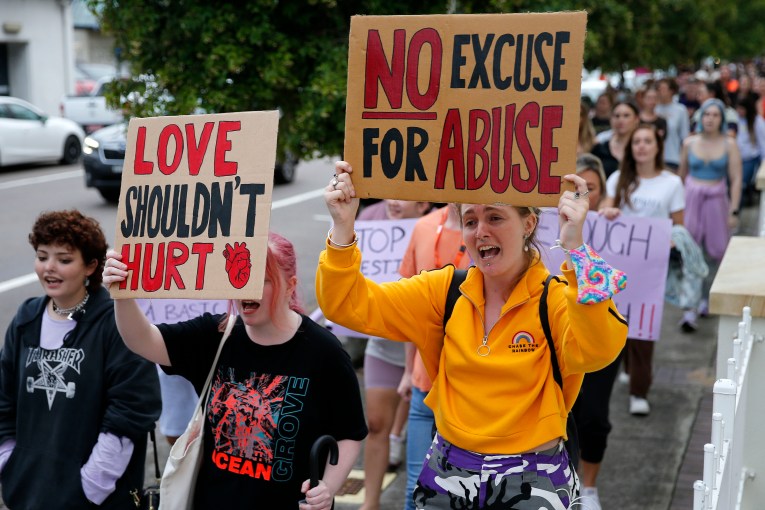Political paralysis deepens in Israel as PM Benjamin Netanyahu indicted


Benjamin Netanyahu could face up to 10 years in jail. Photo: Getty
Israel’s longest-serving prime minister could be at the end of his political career.
For more than 10 years, Benjamin Netanyahu – once dubbed the ‘king of Israel’ – has governed the Middle Eastern country. But perhaps not for much longer.
The divisive leader has been indicted on serious corruption charges, including bribery, breach of trust and fraud, following a three year investigation, the attorney general announced on Friday (Australian time).
What are the allegations?
- Mr Netanyahu allegedly accepted expensive gifts such as pink champagne and cigars from billionaires such as Australian businessman James Packer in return for political favours.
- He allegedly struck a deal with the owner of Israeli daily newspaper Yedioth Ahronoth to receive favourable media coverage in return for making laws that would slow the growth of competing newspaper Israel Hayom.
- He allegedly promoted regulatory decisions that favoured Israeli telecommunications giant Bezeq in exchange for favourable coverage on Walla!
Mr Netanyahu has denied all three charges, instead blaming a “witch hunt” by the media.
He is under no legal obligation to resign, and if the cunning political manoeuvring of his past is any indication to go by, it looks like he won’t go down without a fight.
Why is Israel in a political deadlock?
Mr Netanyahu has failed again and again to form a governing coalition this year, grinding Israel’s parliament to a halt.
A major reason why he could no longer form government this time is because one of the parties that usually makes up part of his coalition – Avigdor Liberman’s nationalist party, Yisrael Beytenu – suddenly refused to join again.

Avigdor Lieberman won’t come to Netanyahu’s party.
Mr Liberman wanted to make a stand against the influence of ultra-religious parties in Mr Netanyahu’s conservative government.
Chief rival Benny Gantz, head of the centrist Blue and White party, is fighting to make a claim for the top job.
But Mr Gantz is up against a paralysed political system that shows no sign of budging.
In September, the former military chief went head to head with Mr Netanyahu in a general election but neither won a clear majority under the country’s proportional representation voting system.
Mr Gantz was then given one month to forge a coalition but still he couldn’t rally enough support.
He told President Reuven Rivlin on Wednesday night that he had failed after talks broke down with Mr Netanyahu’s right-wing Likud party and Avigdor Liberman’s nationalist party, Yisrael Beytenu.
He has made a point of refusing to join forces with Mr Netanyahu.
“In the last 28 days, I have turned every stone in an attempt to form a government that leads the State of Israel to a different leadership,” Mr Gantz said in a tweet.
“Unfortunately, it was not enough.”
He blamed his defeat on a “hate campaign” led by Mr Netanyahu.
While the defeat is bad news for Mr Gantz, Israeli voters are feeling the crunch too.
If no lawmaker is successful in assembling a 61-seat majority over the next three weeks, voters will be forced to drag themselves to a third round of elections in less than a year.
Professor Amin Saikal, former director of Australian National University’s Centre for Arab and Islamic Studies, said holding another election might not be the quick fix everyone is hoping for.
“We’re at a stalemate because neither of the parties seem able to form a coalition government,” Professor Saikal told The New Daily.
“Voters are either going to vote in the same pattern as before, or provide one of the major parties with sufficient basis to form a coalition government.”
Why should we care?
Despite an ongoing and bloody conflict with Palestinians, especially in Hamas-controlled Gaza, Israel is the Middle East’s most stable democracy. A major breakdown could further rupture peace in the volatile region.
Ahron Shapiro, a senior policy analyst at the Australia Israel and Jewish Affairs Council, said “the world should care about Israel” because of the Middle East’s “fragile net of dependencies”.

Always close to flashpoint, a further eruption of conflict in Gaza could be the catalyst for even more instability. Photo: EPA
“If Israel is strong, it creates a balance in that region, and if Israel is perceived as unprepared or weak, it invites war from terror groups or Iran,” Mr Shapiro told The New Daily.
“Israel’s political paralysis risks sending a message to Iran… which has promised to destroy Israel many times… that Israel is not prepared for threats.”
Iran has worried world leaders this year by rapidly ramping up its nuclear program, including the expansion of uranium production.
“Over time we should be concerned that Israel’s failure to form a government could have implications,’ Mr Shapiro said.
“Without a government, you can’t plan well for the future or fund the army properly for future threats.”








